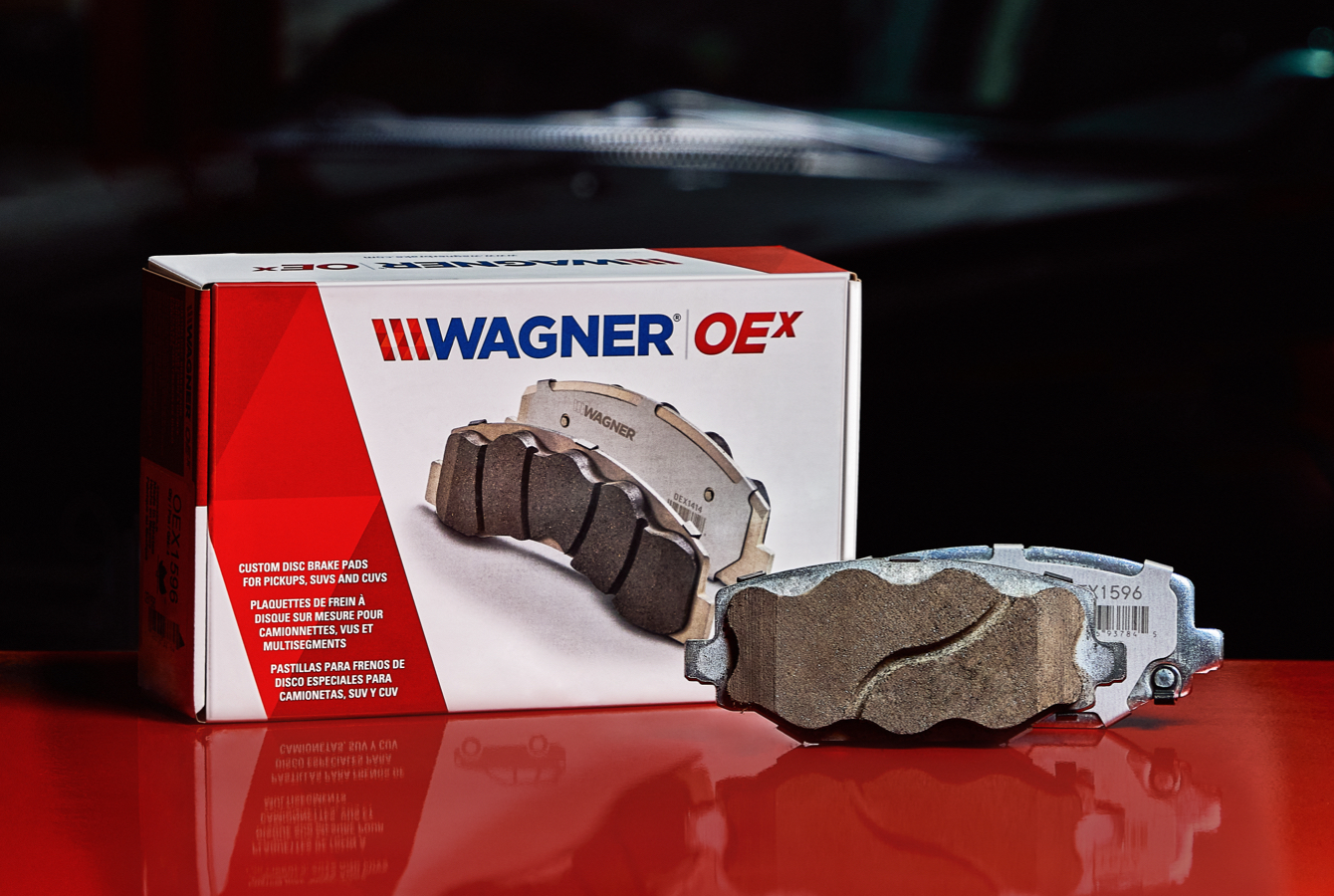How Brakes Work

While you rely on your brakes every time you get behind the wheel, you likely haven’t thought much about how the brake pads and rotors work together to safely bring your vehicle to a stop. Did you know that the process of the brake pad contacting the rotor to stop your vehicle creates a large amount of heat? This heat must be dissipated to ensure that your brakes continue to perform at a high level. When properly controlled, this heat is a normal byproduct of braking; however, if too much heat builds up it can affect braking performance.
What Happens If your Brakes Overheat?

Heat can build up in situations like braking down a long hill, holding your foot on the brake pedal while driving in stop-and-go traffic or driving in an aggressive manner. If the heat doesn’t escape and the brakes overheat, it can lead to a sudden decrease in braking performance known as brake fade. When this dangerous condition occurs, the brake pads and rotors can’t generate the friction needed to bring the vehicle to a stop. You’ll notice that the brakes aren’t as responsive as they typically are and that there is an increase in the time and distance that it takes to stop your vehicle.
Besides decreased performance, there are two other telltale signs of overheated brakes you may notice.
Burning Smell
When brakes overheat, they give off an unmistakable smoking odor.
Spongy Pedal
Overheating brakes can cause the brake pedal to feel spongy or soft.
Another condition that can occur is brake fluid boil. During intense braking, the brake caliper can heat up which increases the temperature of the brake fluid. If the brake fluid boils, it can cause the brake pedal to go to the floor when applied.
If you experience brake fade or brake fluid boil or notice either of these symptoms, it is imperative that you pull over and stop driving. Continuing to drive with overheated brakes can lead to permanent damage.
How Is HeaT Controlled?
Controlling the heat generated during the braking process is key to avoiding overheated brakes. Brake heat can be managed by using brake pads that have friction materials designed to dissipate heat. For example, ceramic brake pads are known for their heat dissipation capabilities. Not only do ceramic brake pads reduce the risk of brake fade but they also cause less damage to the brake rotors.
Wagner® Develops Unique Brake Pad Shape to Control Heat
In the past, copper was commonly used to draw heat away from the brake pad surface. However, with tough low-copper standards being implemented, Wagner engineers needed to develop an innovative solution that didn’t compromise the effectiveness of the brake pad. To promote heat dissipation and ensure stable braking, Wagner engineers came up with the idea of altering the shape of the brake pad to increase airflow into the brake pad and reduce heat. After extensive testing, Wagner OEX brake pads were introduced.
Custom designed, Wagner engineers take the weight of the vehicle and the amount of heat that it generates into consideration when developing the brake pads for each application. Depending on the vehicle, OEX brake pads feature patented wave shapes and/or precisely engineered slots. As the wave shapes disrupt the airflow around the pad and the air moves around the pads and through the slots, it draws brake heat away and continuously cools the pad.
Trucks and full-size SUVs are heavier and can generate a lot of heat during the braking process and these hardworking vehicles need a brake pad that effectively dissipates heat. Wagner OEX brake pads for these applications feature both patented wave shapes and slots to ensure cooler brake pads and optimal brake performance. For lighter vehicles like sedans and compact SUVs, OEX brake pads feature slots to help draw heat away from the pad. These vehicles don’t generate a great deal of heat due to their lighter weight and the slots in Wagner’s OEX brake pads are ideal for ensuring cooler operation.

The result of OEX’s enhanced cooling capabilities? Better stopping power and premium performance that can last up to two times longer*. You can count on OEX brake pads for:
- Enhanced Strength
- Full-Line Coverage
- Corrosion Resistance
- Quiet Operation
- Dust-Free Braking
- Hardware Included
*Results based on internal testing comparing Wagner OEX to other Wagner offerings.
Learn more about quality brake pads and rotors, find your car part, or find where to buy your auto part today.
The content in this article is for informational purposes only. You should consult with a certified technician or mechanic if you have questions relating to any of the topics covered herein. Tenneco will not be liable for any loss or damage caused by your reliance on any content.
OTHER PARTS FOR YOUR VEHICLE
Wagner® offers a wide variety of products for all of your automotive needs. Check them out today!